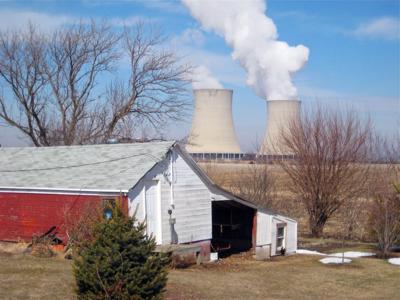(The Center Square) – Exelon's CEO cast fresh uncertainty on the profitability of its subsidiary's nuclear facilities in Illinois without intervention from lawmakers despite the eroded trust after a patronage and lobbying scandal.
In the company's quarterly earnings call Tuesday, Exelon CEO Christopher Crane, joined by ComEd CEO Joe Dominguez, reiterated their regret for the admitted schemes perpetrated by “a few individuals” at ComEd.
“We apologize for the past conduct,” he said at the opening of the call. “It did not live up to our values.”
Crane was referring to a three-year deferred prosecution agreement between U.S. Attorney John Lausch Jr. and utility ComEd where the company admitted to a patronage scheme that netted them at least $150 million worth of legislative benefits. In exchange, the company offered lucrative jobs, internships, and contracts with allies of House Speaker Michael Madigan. The long-time Illinois House Speaker has denied wrongdoing and has not been charged with a crime despite being implicated in the agreement.
When questioned by analysts about the future of legislative action in Springfield to allow ComEd to sell subsidized nuclear power, Dominguez said company representatives still in communication with state officials.
The company needs state lawmakers to create a separate wholesale energy market that would allow its six nuclear plants to sell subsidized energy. Federal regulators objected to the nuclear plants selling discounted power on the PJM Interconnection market because it put other energy providers at a disadvantage.
Should those talks break down, some of the company's nuclear facilities in Illinois could become “uneconomic,” Crane said.
“It’s very critical for us to get it done,” he told investors. “PJM is going to run an auction, and there’s a strong sense from our analytic folks that some of the nuclear units are not going to be picked up in that auction. Some are uneconomic at this point right now, and some more may become uneconomic. Our commitment to you has always been if we can’t find a way or path to profitability, we’ll have to shut them down.”
Exelon operates six nuclear power facilities in Illinois. The company said last October that the Byron, Braidwood, LaSalle and Dresden plants were in danger of being shuttered. The plants employ hundreds of workers.
Critics of the plan to offer Exelon a state-based market to sell its energy contend that it amounts to another subsidy that would result in higher rates for consumers. Dominguez said on the earnings call that recent legislation has resulted in customer savings.









